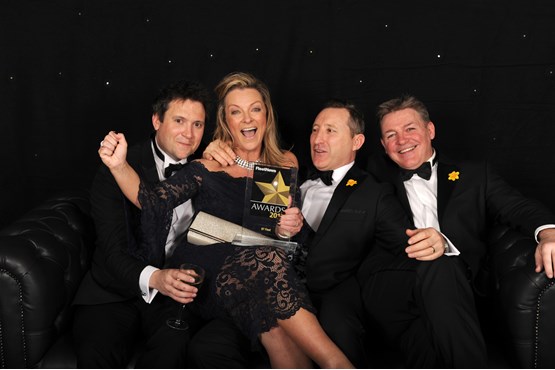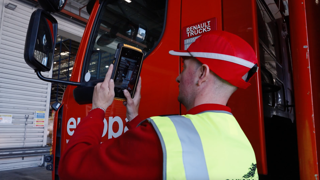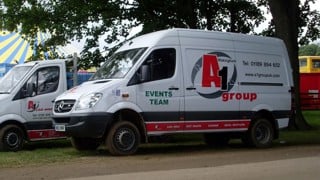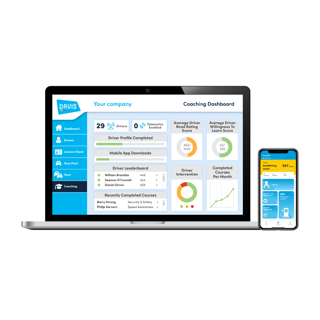Company explores up-to-date ways to improve its service without losing consistency of delivery and responsiveness. By Andrew Ryan.
As part of a large technology company, BT Fleet Solutions is keen to embrace the latest developments to improve its fleet offering.
The business is looking to use ‘big data’ to help fleets reduce downtime and costs, while it is also launching a suite of apps aimed at further improving its service.
However, this investment in technology is not at the expense of its more traditional strengths, says Henry Brace, managing director of the company which was named fleet supplier of the year at the 2017 Fleet News Awards.
“Our core products are fleet management and service, maintenance and repair, and we are always going to be looking at strengthening those,” he adds.
One example of this is BT Fleet Solutions’ acquisition of mobile vehicle maintenance and servicing business SEV Automotive and Plant last year.
“Since we bought the company, we’ve been looking to integrate and consolidate that with our existing operations and we are growing it as well,” says Brace.
“When we took it on, it had about 40 mobile technicians. We now have more than 50 and are looking to expand to around 65 over the next six months.
“That’s in response from both our existing customers and new customers in the market.”
BT Fleet Solutions is also looking to expand its fixed garage network from its current size of 65, and is opening a new site in Warrington in April.
Brace adds: “We will always look to expand both the footprint and the capability of our fixed garage network and we feel that offers us something unique in the marketplace.
“More than 80% of our customers’ 120,000 vehicles go through our owned garage network rather than third-party sites, so we can get that consistency of delivery and responsiveness.”

Fleet News (FN): What advantage will mobile servicing deliver to your customers?
Henry Brace (HB): It takes vehicle collection and delivery out of the cycle which are two things that can go wrong.
By being able to take the mountain to Muhammad, we are able to not only generally massively reduce the actual time needed to do the maintenance itself, but we can be very responsive to our customers’ needs.
In instances where we have to work on multiple vehicles at the same time, it allows a customer to be quite flexible with how they are using those vehicles.
For example, they can take a last-minute decision that they don’t want that vehicle maintained because it has an immediate operational requirement.
We are also talking to a number of our existing customers and prospects about working in true partnership to set up operations on their sites – sometimes in permanent buildings, sometimes in semi-permanent ones.
FN: Many of your services are focused on reducing vehicle off-road time. How big an issue is that for your customers?
HB: We only have 28 customers, but they are all big household names that have mission-critical fleets.
We do some market research with The AA called the Operational Fleet Insight and one of the interesting stats from our latest report is that nearly half of the 400 fleet managers surveyed did not know the cost of a vehicle being off the road for a day.
For our customer base, that is anywhere between £250 and £1,000. When you start to deal with numbers like that, it’s why everything we do is focused on getting that vehicle back on the road as soon as possible.
FN: How is BT Fleet Solutions using mobile and connected technology to help its customers?
HB: We are currently rolling out a suite of mobile apps to our customers. Our vehicle daily defect check app is quite different to the off-the-shelf products in the marketplace as it is fully integrated into our fleet management system.
This means that when defects are identified, the parts are already being ordered and the job is already being created.
It is all about reducing vehicle off-road time. In the next couple of months we will be launching our online booking app, accident management app, management information app and garage locator app.
This use of technology is being driven through us being a technology company and wanting to be a thought leader in terms of fleet management, but also in terms of our customers who are seeking ever-more innovative ways to manage their fleet.
A lot of our customers are also benefiting from our investment in our connected vehicle proposition, where we have an integrated telematics solution.
The real bonus is that it is not off-the-shelf; it is integrated into our fleet management system so not only does it do the standard things of reducing fuel use and keeping drivers safe, but it also proactively monitors engine diagnostics to allow preventative maintenance.
FN: There is a lot of talk in the technology industry about how companies can use ‘big data’ to improve services. Is this something BT Fleet Solutions is looking at?
HB: As a technology company holding a large amount of information on 120,000 vehicles, we feel we are quite well positioned to start bringing together some of that data.
We are performing a lot of data analysis so we can do things like predictive maintenance and smart scheduling.
This will allow us to make recommendations to our customers about how they should be managing their fleets, maybe looking at their replacement or maintenance cycles, or that their vehicles should be driven differently.
We are able to say to a customer that we look after 30,000 Ford Transits across a variety of businesses, yet they are not incurring the same maintenance costs they are.
Then we can start to do data dives into those individual customers and get down to either the driver behaviour or another aspect of their business which is driving that unusual maintenance pattern.
We see this very much as the future of where data is going and is why it is very important that we integrate with our partners so our operational systems are married up to theirs.
The move to alternative fuelled vehicles was identified as one of the most pressing issues in fleet in the Operational Fleet Insight report and BT Fleet Solutions is keen to position itself as a leader in this area.
“Companies like my own (BT Group) have made commitments in this area,” says Brace.
“For example, we are going to be 100% low carbon vehicles by 2030, which is a huge challenge when the product in the market isn’t always there for the difficult commercial needs we have, and our customers have the same issues.
“We are really seeing an inflexion point where legislators are making declarations about how green either their local authority or their region is going to be, and that means we are driving a huge pace of change about how we procure, maintain and remarket vehicles.
“That is the biggest change I can see coming in terms of our own fleet and our customers’ fleets and we want to be right on the crest of that wave.
“We are already massively investing in the shift to alternative fuel vehicles.
“All of our garages are being equipped with charging points, we are training our technicians to be right at the top of the class when it comes to maintaining electric vehicles, and we are investing in our systems and our partnerships to lead the market in this area.”





















Login to comment
Comments
No comments have been made yet.